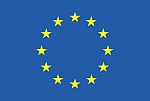short menu
About EUREC
National Information
Services
- Event Calendar
- Information for Researchers
- Training Materials
- Login for EUREC members

This network has received funding from the European Union.
EURECNET - National Information: Ireland
National Information: Ireland
Short description of RECs system:
There are 12 RECs. The list of research ethics committees in Ireland:
http://health.gov.ie/blog/policy/clinical-trials-involving-medicinal-products/.
Ethics committees with the competence to review clinical trials of investigational medicinal products (IMPs) must be recognized by the Ethics Committees Supervisory Body, this Body is currently the responsibility of the Minister for Health, who heads the Department of Health. When recognizing an ethics committee, the Supervisory Board must specify whether it may act for all areas within the Republic of Ireland and the description or class of clinical trials for which the committee may act. Currently, various different bodies establish these recognized committees, including hospitals, universities, the Irish College of General Practitioners and in two areas the local Health Services Executive. Only ethics committees recognized by the ECSB are authorized to assess clinical trials. The Department of Health and Children is currently preparing to delegate the function of Supervisory Body to the recognised ethics committees to the Health Information and Quality Authority. In preparation for this, the Health Information and Quality Authority have set up a Research Ethics Advisory Group which is currently preparing the standards for those committees recognised to review clinical trials of medicines.
http://health.gov.ie/implementation-of-eu-directive-on-good-clinical-practice-in-clinical-trials/ and https://www.hpra.ie/homepage/medicines
For research involving human subjects other than those involving medicinal products there is currently no specific legislation. However, the Department of Enterprise, Trade and Employment established the Irish Council for Bioethics as a wholly autonomous body that has issued Operational Procedures for Research Ethics Committees: Guidance 2004. The ECSB does not have responsibility for any other ethics committees, but the Guidance issued by the Irish Council for Bioethics informally applies to all ethics committees reviewing research projects involving human subjects. The Irish Council for Bioethics closed in December 2010. http://health.gov.ie/national-advisory-committee-on-bioethics/ In 2013 The Health Service Executive issued a number of documents which refer specifically to research. The National Consent Policy -- http://www.hse.ie/eng/about/Who/qualityandpatientsafety/National_Consent_Policy/ and Data Protection and Freedom of Information Guideline -- http://www.hse.ie/eng/services/list/3/acutehospitals/hospitals/ulh/staff/resources/pppgs/dp/dp.html The Health Information and Quality Authority also intends to have a supervisory role over these Committees. However, before it can undertake this task a statutory instrument needs to be enacted. https://www.hiqa.ie/search/node/Research%20Ethics
Attendance at conferences / seminars / training events which are relevant to the area of research ethics: members of different RECs are attenders at some of the conferences run by EFGCP. Beaumont University Hospital Research Ethics Committee runs an annual training day for its members. Members of Connolly Hospital REC and Royal College of Surgeons in Ireland REC also attend this training day. The Royal College of Surgeons in Ireland, Maynooth University and Dublin City University are developing a week long course intended for students and staff conducting research. The focus of the course will be on ethical research and integrity in research.
Networking between RECs:
Currently in Ireland there are three networking groups and it is hoped to establish a fourth. http://www.molecularmedicineireland.ie/research/#Programmes Research Ethics Committee Standard Application Form Consultation Group: representatives of committees using the Research Ethics Committee Standard Application Form meet regularly to review and update it. The form is available here: http://www.beaumontethics.ie/
Academic RECS: representatives of committees based in third level institutions meet regularly for the purposes of networking. The topic for discussion / date of the meeting is decided via email collaboration. The venue for these meeting rotates between third level institutions.
Beaumont / Connolly / RCSI: these three committees are due to be affiliated via the Beaumont / Connolly / RCSI Academic Health Centre which is due to be set up in 2012, and meet regularly in preparation for this.
There is also a plan to set up a networking group of the specialist research ethics committees in 2012 i.e. prisoner / traveller / disability / charity etc
